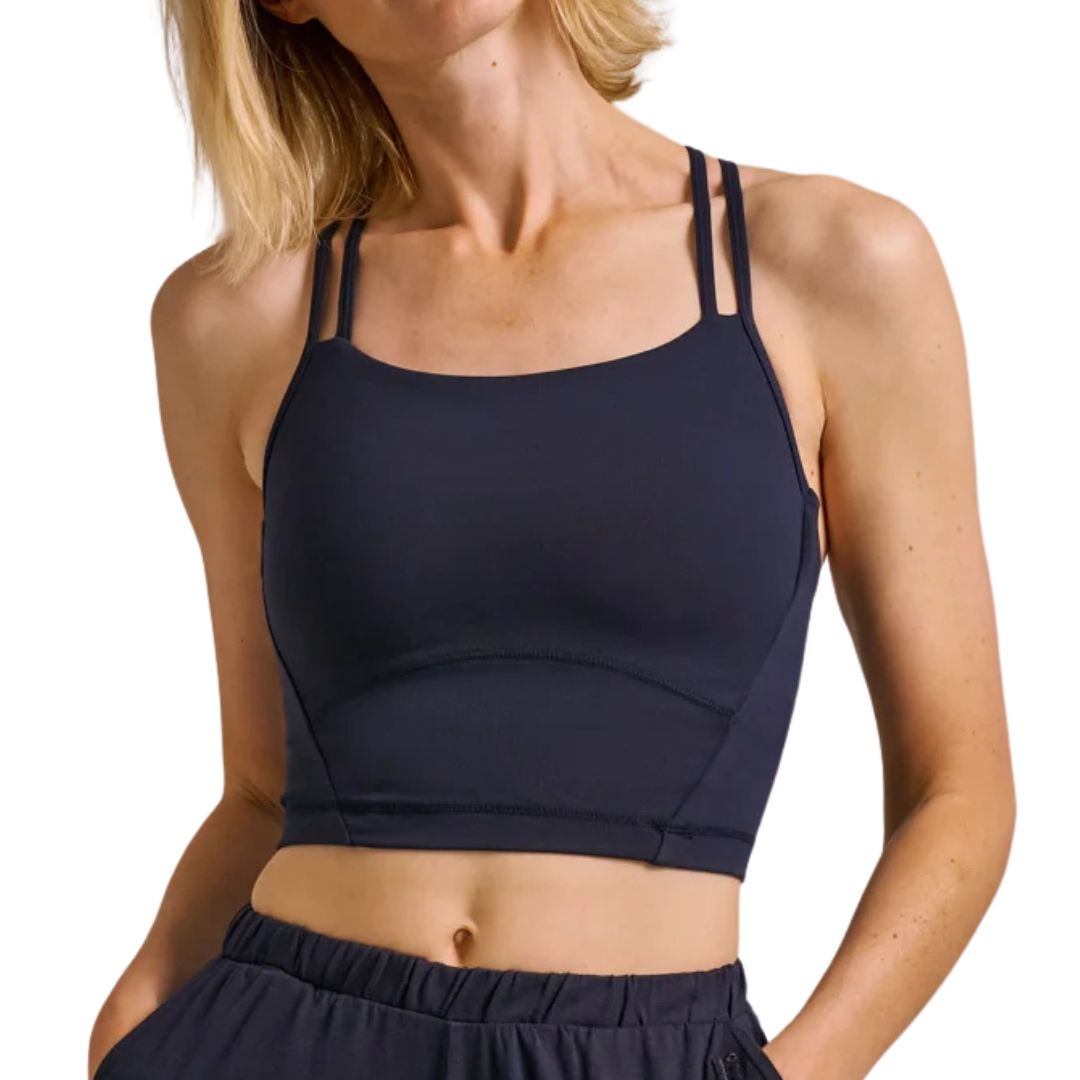Feeling inspired by the London Marathon? 10 science-backed pieces of running advice for beginners
"Remember, running is for everyone - you included."


Has the electric energy and empowering atmosphere of this year's London Marathon got you feeling inspired? Firstly, we're with you on that one. But, secondly, this probably means you're looking for some expert-backed running advice for beginners to help you kickstart and catch the running bug fever.
If that's the case, you're not alone. A record-breaking 840,000 people applied for the ballot to enter tomorrow's marathon, which will see 56,000 people take on the 26.2-mile run, breaking the world record of 578,304 for the 2024 edition. Plus, according to Google stats, there have been 1,000 to 100,000 average monthly searches for "running tips", with the phrase "tips for beginner runners" at breakout. So what's the reason for this boom?
“With gyms around the UK being closed throughout lockdown, Covid attracted a whole new audience to running," Rory Knight, director of fitness & experience and coach at fitness app, WithU explains. "That audience, once they experienced that addictive runner's high, became hooked. I think that the emergence of Hyrox, plus the popularity of run clubs, races, and communities, have all also played a big part," the expert adds. "I love seeing how many people are embracing running and how cool it’s become."
If you're keen to join the bandwagon, we spoke to a range of running experts to share their top tips and science-backed advice on running tips for beginners that could help you get your jogging journey off to the right foot. We've covered everything from injury prevention advice to tips on strength training to help futureproof your body and make you a better runner. So, if you're keen to put your best foot forward, keep scrolling.
Plus, while you're here, you might be interested in simple ways to make running for longer seem easy and the best hydration vests to keep you hydrated through the summer months. If you're looking for more running content, discover our all-important training tips for running your first marathon and how to improve your stamina. And if you've already ticked off a 5K, check out an athlete's 10K training tips.
On the hunt for non-intimidating running advice for beginners? 10 tips
1. Run in suitable footwear
One of the best things about running is the fact that you don’t need much - if any - equipment to lace up and go. But if there is one piece of fit kit to invest in, it's a pair of the best running shoes for women.
“Running in unsuitable footwear can lead to injury and frustration, so find a pair of trainers suitable for you and your gait,” Knight says. “Lots of specialist running stores will be able to offer you a gait analysis, or if the cost is prohibitive, they usually offer a baseline level of free advice that could make a big difference to you on your running journey.”
Marie Claire Newsletter
Celebrity news, beauty, fashion advice, and fascinating features, delivered straight to your inbox!
We get it. With the seemingly never-ending list of running trainers available to buy, it can be hard to know where to start. But, as Knight flags, instead of just picking a pair because of their cute design, it's well worth finding some wheels that meet your every need. For more inspiration, discover the best running shoes, all tried and tested for every gait type, distance, and occasion.
2. Be consistent
No matter whether you’re training for a race (hello, best UK running races), looking for a new cardio workout to help boost your heart health, or just running for fun, Knight suggests creating some consistency to help you progress your practice.
"Create some accountability by committing to lacing up, say, two to three times a week and starting with walk/run combo sessions,” Knight says. “After a few weeks, a habit will be forming and your body will be gradually adapting to running in an incremental, sustainable manner."
Knight mentions that over time, this may increase to running three to four times a week, with the amount of time you spend walking decreasing and the amount of time you spend running increasing.
"Before you know it, your fitness levels will be on the up and you’ll have that bigger goal in your sights," the expert notes.
3. Focus on consistency over intensity
That said, while it's all well and good being consistent in your running practice, Sarah Campus - who is a qualified women's PT, nutrition coach, runner and founder of holistic wellness platform LDN MUMS FITNESS and Soho House Running Club - says it's best to focus on consistency over intensity.
"This is important because you will make the most progress by running regularly - even if the runs are short and slow," Campus explains. "It builds habit, aerobic base, and mental resilience. Three easy runs a week trump one gut-busting run that leaves you wrecked."
@drhazelwallace ♬ original sound - Dr Hazel Wallace
4. Run with a friend or join a community
Whether you’re looking for a motivation boost (you’re less likely to cancel on your mate than you are yourself, right?), accountability or for more ways to inject some fun into your runs, running with a friend or community could help you create the consistency you have been searching for.
“For me personally, there is nothing better to ensure that time flies by on your runs than by running with a buddy or a run club,” Knight notes. “Around eight years ago, we formed Track Life Ldn to remove the elitism that is often synonymous with running on a track. Our vision was to create a community whereby people could experience the joy of an interval session and be a part of the team, regardless of how ‘fast’ they were," the expert says. "Remember, running is for everyone - you included," Knight adds.
The good news is that there are plenty of running groups popping up left, right and centre. From ones that can help you run a mile without stopping to options that can give you running tips on how to work up to 5km. So the hardest thing you have to do is decide which one best fits your running vibe.
5. Progress your running gradually
When you're doing anything for the first, second or third time, it's easy to fall into the trap of wanting to take things too far too soon. But, according to Laura Wilson, physiotherapist and founder of The Swiss Touch, when it comes to running, it’s best to start small and work your way up.
“Sudden increases in running volume are one of the primary risk factors for injury in novice runners,” the expert explains. “Research suggests that increasing distance or intensity too rapidly can contribute to up to 60 to 70% of running-related injuries.”
So, to help support tissue adaptation, Wilson recommends beginning with structured walk-run intervals (e.g., one minute running, two minutes walking) and increasing the running component incrementally each week. "This gradual progression allows tendons, joints, and connective tissue to adapt while also improving aerobic capacity," Wilson explains.
6. Incorporate strength training
We’re big fans of strength training here at Marie Claire UK. Not only because the benefits of strength training have the pretty impressive ability to enhance the quality of your life and daily function. But, as research has proven, it can also help make you a better runner.
“Strength training is widely supported in literature for its role in improving running economy, muscular endurance, and injury prevention," Wilson explains. "Strength training can reduce sports injuries by over 66%, particularly in overuse conditions common in runners,” the expert adds.
And Campus agrees, adding: “This is because strong glutes, hamstrings, and core muscles significantly support your stride and help prevent classic running injuries like runner’s knee or shin splints. Just 15–20 minutes using light weights, a couple of times a week, makes a huge difference."
But which strength training exercises are best for runners? “Focus on compound, functional, single-side exercises such as glute bridges, step-ups, single-leg squats, and calf raises," Wilson recommends. But why so? "These target key muscle groups involved in shock absorption, hip stability, and propulsion," the expert adds.
@allyyyhead ♬ (It Goes Like) Nanana - Edit - Peggy Gou
7. Prioritise a dynamic warm-up
It goes without saying, but it's always important to warm up (and cool down) after any bout of exercise. But not all warm-ups are made equal.
Instead of static warm-ups - you know, the type where you hold a stretch or stationary position for an extended period - experts recommend completing dynamic stretches, where you perform controlled movements that take joints through a full range of motion in preparation for exercise. According to a 2015 review, doing so could help boost power, strength and overall performance.
"Dynamic warm-ups are essential for preparing the body for physical activity," Wilson confirms. "They increase circulation, improve neuromuscular coordination, and prime the body’s range of motion, which can reduce injury risk and enhance performance. In contrast, static stretching before activity has been shown to temporarily reduce muscle strength and explosive power."
So, what dynamic stretches and movements are best? "Effective warm-up drills include leg swings, walking lunges, and ankle mobility exercises that closely mimic running movements." Got it!
8. Learn to differentiate between effort and pain
Doing anything new for the first time can feel challenging, and running is no different. But Wilson says it's important to know the difference between effort and pain.
"While running may initially feel challenging, particularly from a cardiovascular perspective, sharp or persistent pain is not a normal part of training," she notes. "Common running injuries, including patellofemoral pain, Achilles tendinopathy and iliotibial band syndrome, are often linked to training overload and biomechanical dysfunction."
Therefore, Wilson says that recognising early warning signs and seeking guidance promptly can prevent minor discomfort from progressing into long-term injury.
"Running offers tremendous physical and mental health benefits, but it must be approached with thoughtful progression and respect for the body’s limits," Wilson says. "By combining structured loading, regular strength training, intelligent warm-ups and injury awareness, beginners can enjoy a sustainable and rewarding running experience, free from injury setbacks."
9. Focus on your "why"
Marie Claire UK's Senior Health Editor Ally Head has run nine marathons and a 37-mile ultramarathon and achieved three Boston Qualifying times over the course of her running career. She's spent her career encouraging others into movement and shares that one of top pieces of running advice for beginners is to dig deep and work out why it is that you want to get into the sport.
"Cementing your why is one of the simplest ways to motivate yourself to get up and out," she says. "It's the thing that'll keep you focused with your training and is also a great motivator for the days when you're tired or lacking in incentive."
For many, the motivation may be to improve their physical and mental fitness. "My why has varied over the years, but largely stems from proving to myself that I can - and will - achieve seemingly impossible things."
@squatsontoast things I wish I knew before I started 💭🏃🏼♀️ some little tips from me about your running journey. basically in summary persistence is key, start out slow, steady and focus on enjoyment & keeping consistent and the rest will come 🫶🏼 If you’re starting out you got this 🤝🏼
♬ Surround Sound - JID
10. Don't try to do too much, too soon
And finally, Head also advises being realistic with your initial training plan and not overbooking yourself. "If you do too much too soon, you'll not only increase your risk of injury, but likely reach burnout and end up dreading your sessions, too."
Her advice? "Be realistic with your time, social, work and life commitments and diarise your workouts at times that you know you'll be able to do. Aim for a reasonable and realistic workout length, too, and don't compare yourself to others. Ten minutes of running every other day is more overall volume than telling yourself you "have" to run for 45 minutes, putting it off all week, and ending up skipping the session altogether."
Now, question: have we inspired you to lace up?
Shop Marie Claire UK's go-to running kit:

Not only do these springy shoes look good, but they have an increased stack height and a new premium foam midsole, which means they'll put a pep in your step no matter whether you're running a race or training on tarmac. Breathable, lightweight and comfortable, these sneakers are my new favourite runners.

On the lookout for something that can help with muscle recovery? Then allow me to introduce you to these Relief Salts, which do what they say on the tin. Post-run, it's well worth running yourself a warm bath and sprinkling in these little tension-ridding nugget,s which are naturally mined Epsom salts blended with organic botanicals, like soothing Arnica, cleansing Eucalyptus and relaxing Hemp Seed Oil. Me and my no-longer-achy muscles swear by them.

Rebecca, or Becks, is a freelance journalist with more than ten years of experience in the industry. She specialises in all things health and lifestyle and has written for a number of brands including Women's Health, Stylist, the Evening Standard, Good Housekeeping, The Telegraph, Live Science, Tom's Guide and Fit&Well. Becks also writes copy for a number of brands and small businesses.
When she's not weight training, tracking down the best gym leggings, reading a book or at her desk typing away, you'll find her in the kitchen perfecting a new recipe or bake.
-
 Sorry Minimalists—Boden Has Cemented Dopamine Dressing as Summer’s Standout Trend
Sorry Minimalists—Boden Has Cemented Dopamine Dressing as Summer’s Standout TrendBoden’s summer collection is here to bring joy to your wardrobe
-
 We Just Got a Huge Update About the Love Stories in Nobody Wants This Season 2
We Just Got a Huge Update About the Love Stories in Nobody Wants This Season 2 -
 SNL’s Sarah Sherman Breaks Silence on Controversial White Lotus Sketch About Aimee Lou Wood
SNL’s Sarah Sherman Breaks Silence on Controversial White Lotus Sketch About Aimee Lou Wood
-
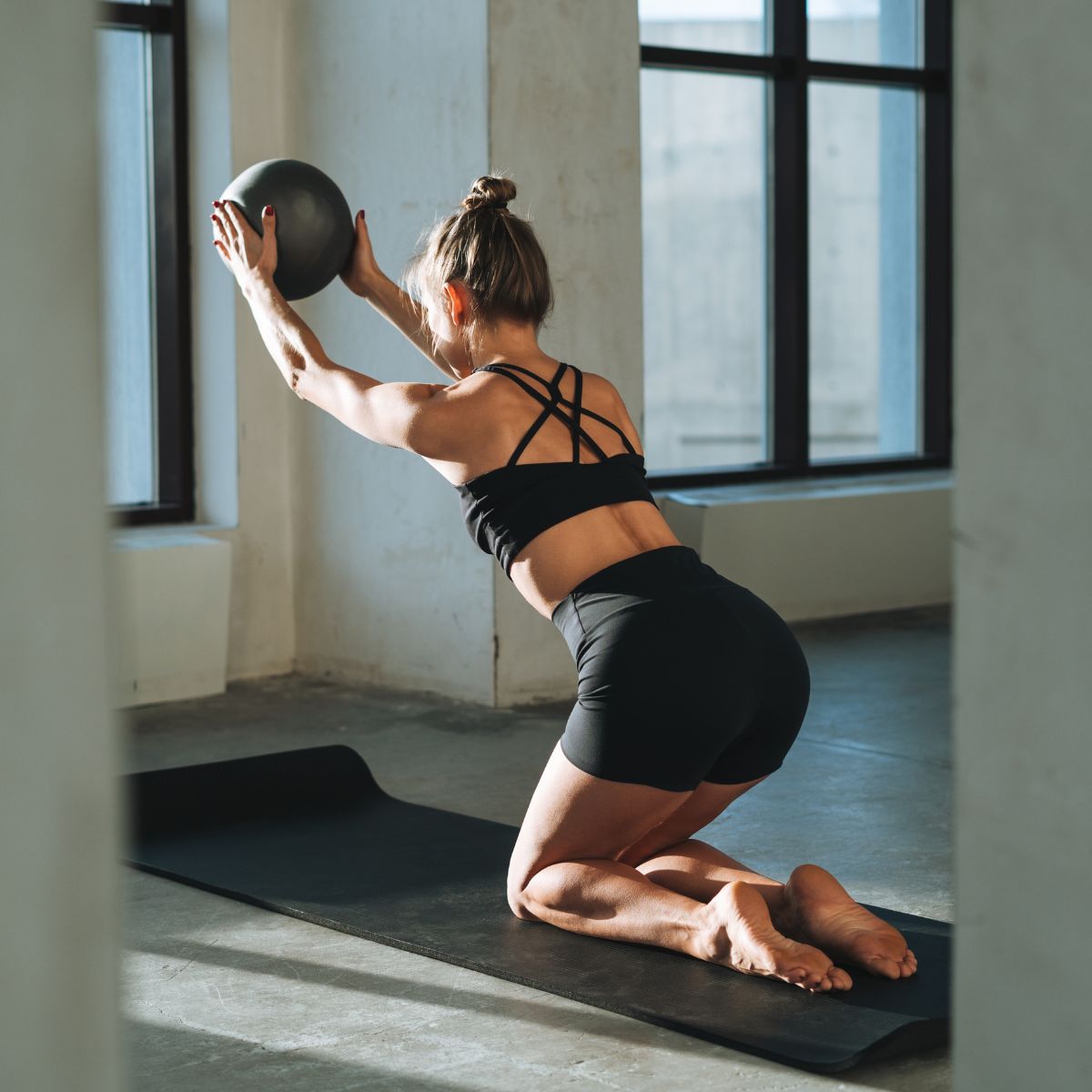 I’ve been practising Pilates religiously for over a year and a half - these are the at-home exercises I swear by for boosting flexibility and strength
I’ve been practising Pilates religiously for over a year and a half - these are the at-home exercises I swear by for boosting flexibility and strengthThe fail-safe moves to master.
-
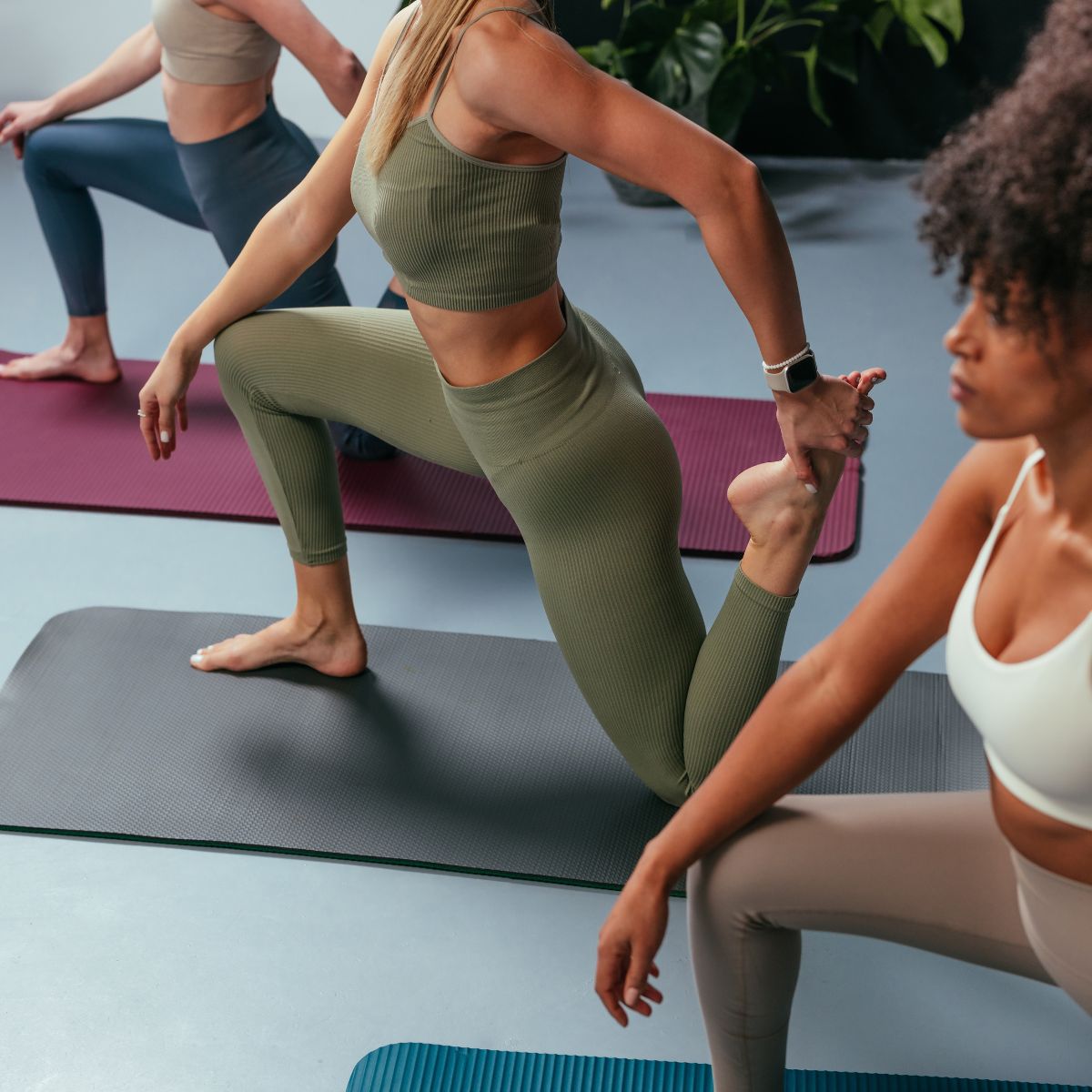 Short on time but keen to get strong? These are the best 15-minute full-body workouts coaches do themselves
Short on time but keen to get strong? These are the best 15-minute full-body workouts coaches do themselvesBecause getting strong shouldn't have to take all day.
-
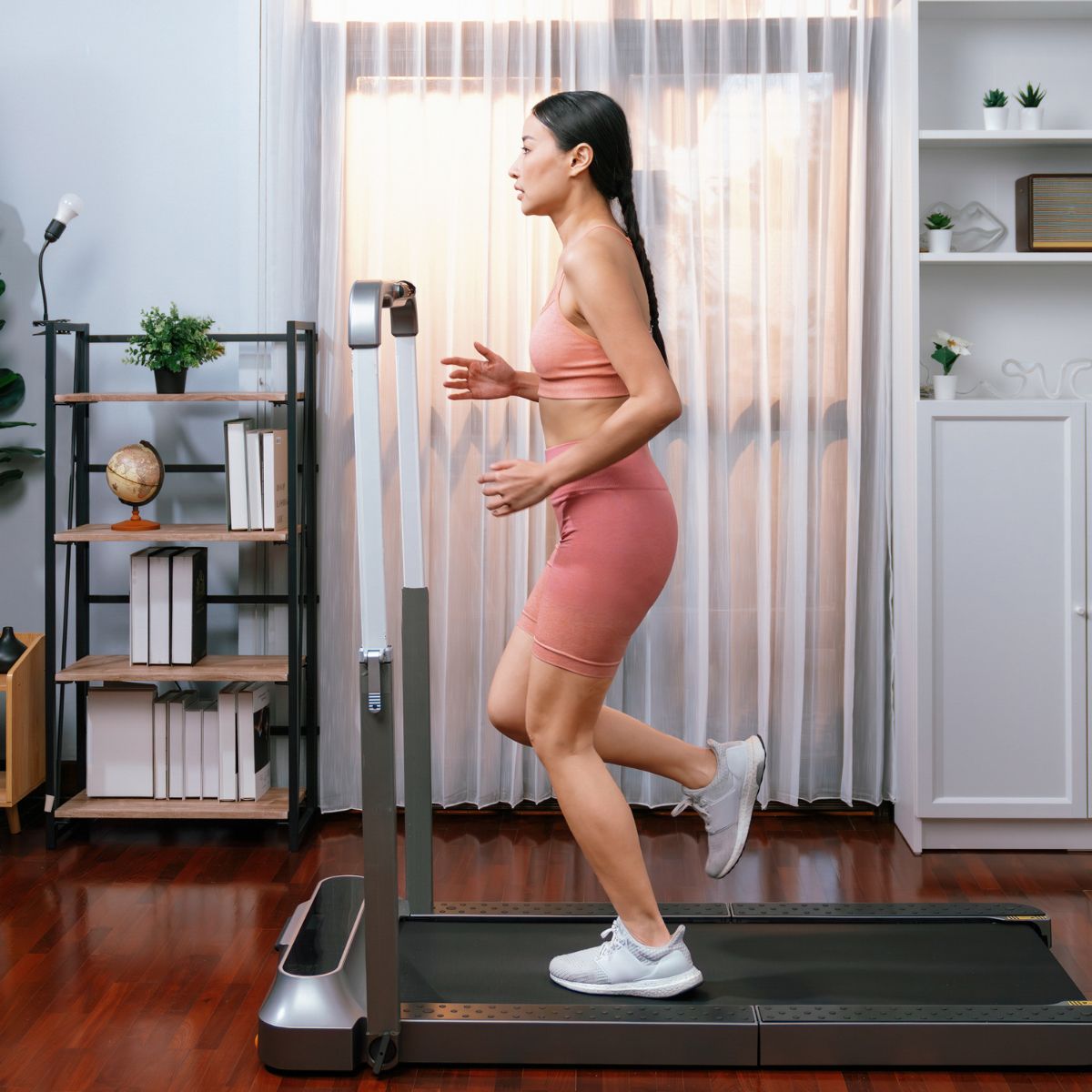 It's the most in-demand piece of fit kit RN - 6 best walking pad workouts for boosting muscle and cardio fitness
It's the most in-demand piece of fit kit RN - 6 best walking pad workouts for boosting muscle and cardio fitnessBookmark these for later.
-
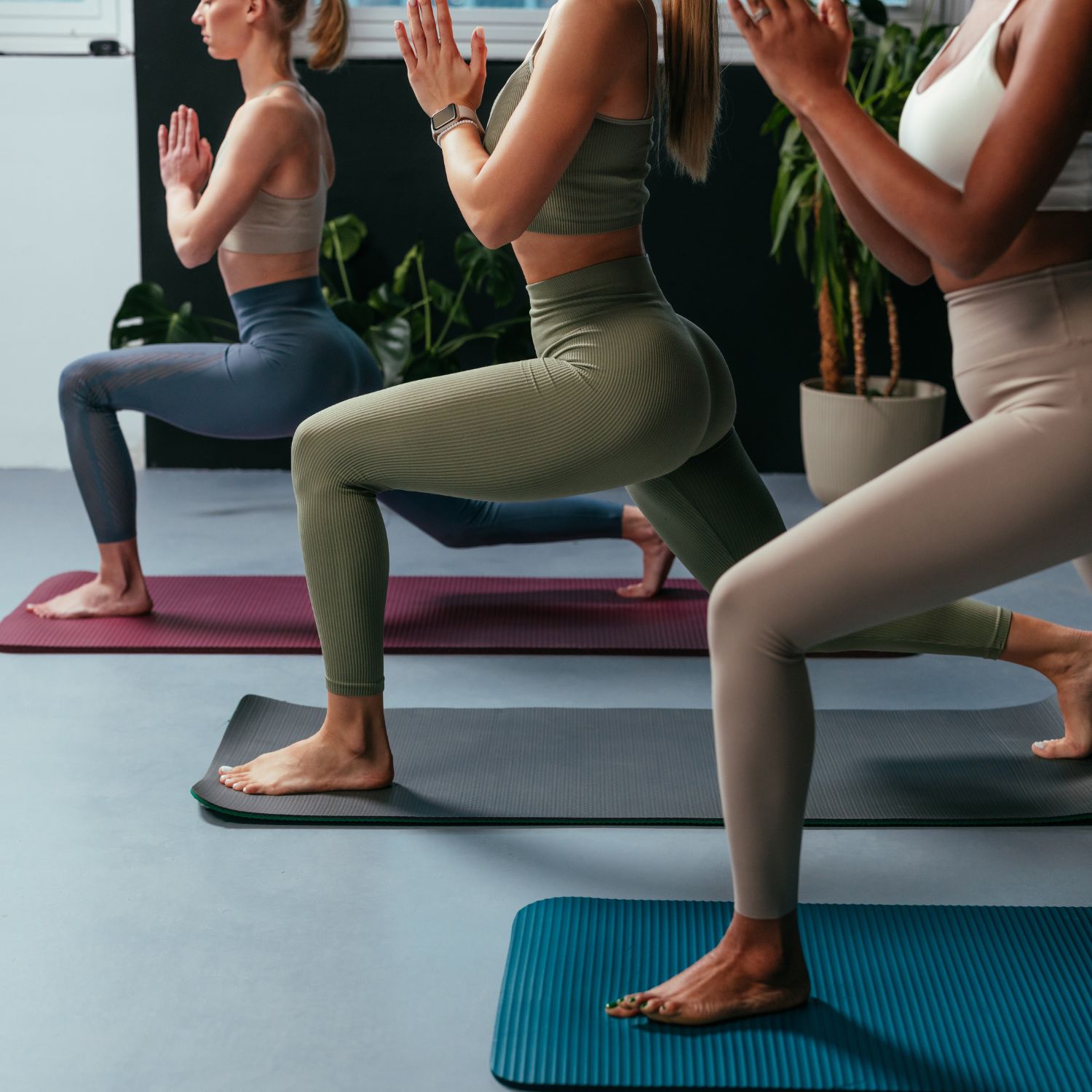 Low impact workouts are all the rage RN - 7 best sessions for building muscle without risking injury
Low impact workouts are all the rage RN - 7 best sessions for building muscle without risking injuryEffective workouts that don't put pressure on your joints.
-
 I tried TikTok's viral silent walking trend every day for a week to quiet my racing mind - and I'm amazed how calm I feel
I tried TikTok's viral silent walking trend every day for a week to quiet my racing mind - and I'm amazed how calm I feelZero distractions, maximum zen.
-
 I'd never run a marathon before - six years on, I'm one of the UK's fastest female marathoners. Here's how I train every week
I'd never run a marathon before - six years on, I'm one of the UK's fastest female marathoners. Here's how I train every weekSerious inspo, served.
-
 Got marathon fever? Trust us: these 12 running accessories will make any distance more manageable
Got marathon fever? Trust us: these 12 running accessories will make any distance more manageableOnce you try these, you won't look back.
-
 I'm a 9x marathoner who likes looking and feeling their best. Enter: the functional but fashionable race day outfits I swear by
I'm a 9x marathoner who likes looking and feeling their best. Enter: the functional but fashionable race day outfits I swear byThese outfit formulas almost guarantee you a PB.
